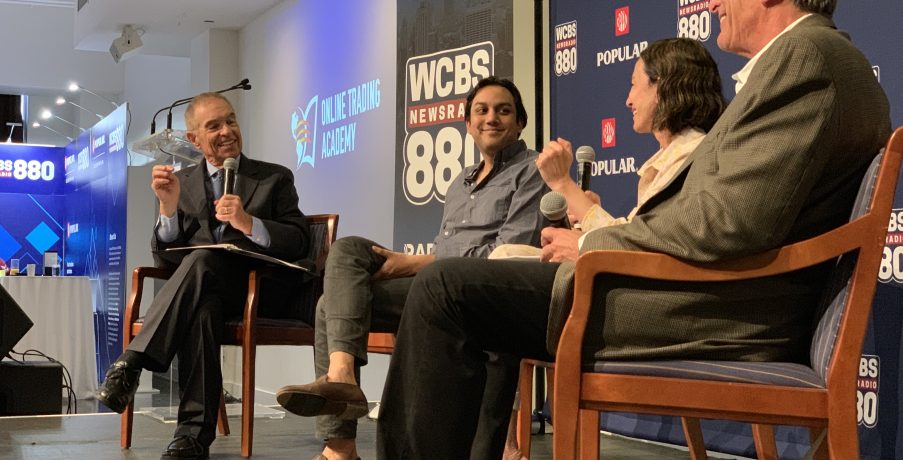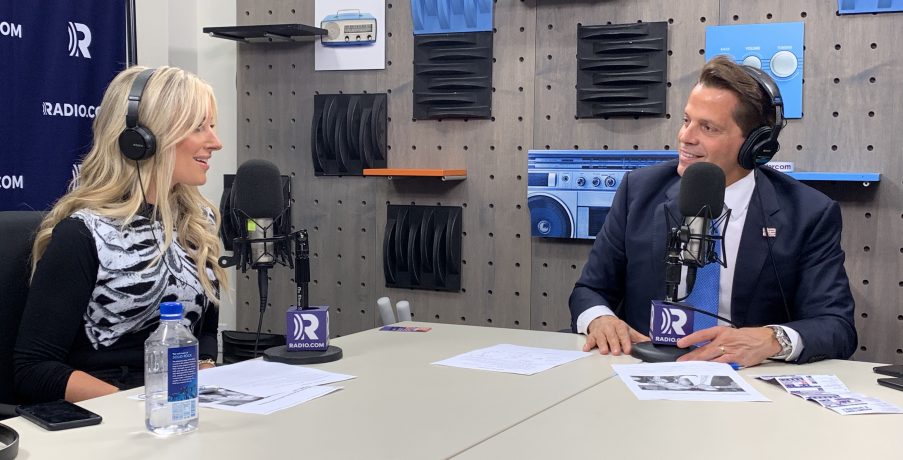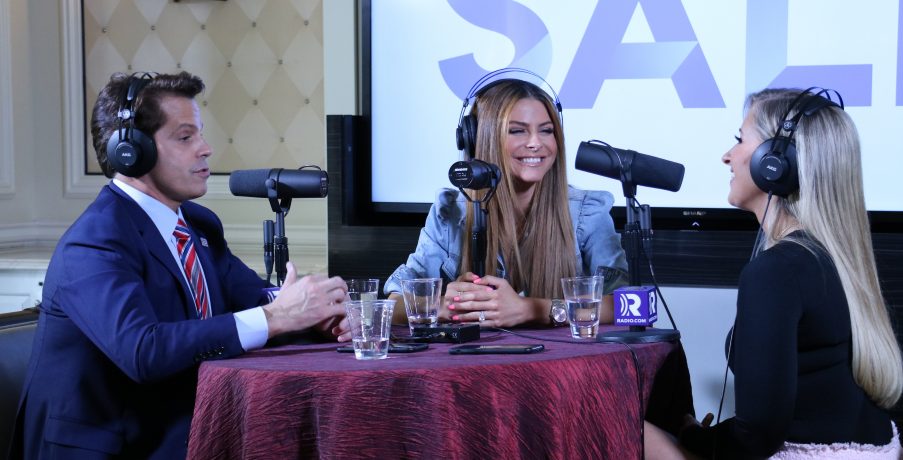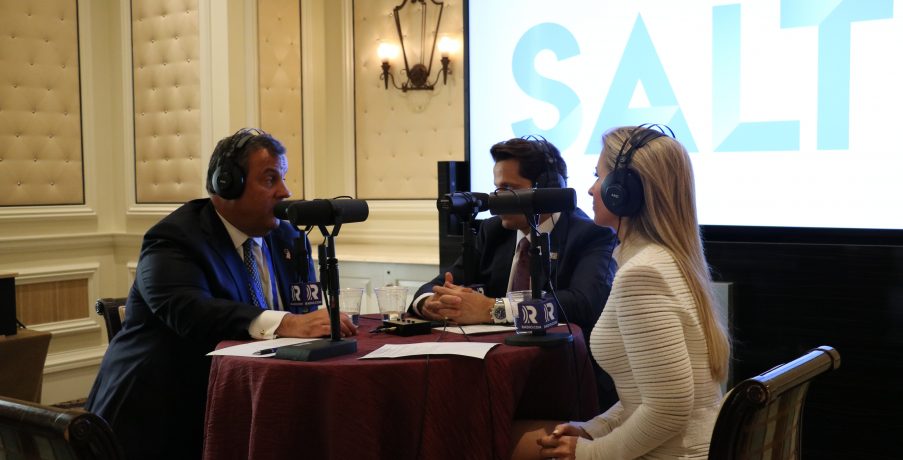
-
Trump Directing Government To Revamp Care For Kidney Disease
Post Views: 1,316WASHINGTON (AP) — President Donald Trump signed an executive order Wednesday revamping care for kidney disease so more people whose kidneys fail can have a chance at early transplants and home dialysis, and others don’t get that sick in the first place.
Trump said his order was aimed at “making life better and longer for millions” by increasing the supply of donated kidneys, making it easier for patients to have dialysis in the comfort of their own homes and prioritizing the development of an artificial kidney.
The changes won’t happen overnight because some initiatives will require new government regulations.
Because a severe organ shortage complicates the call for more transplants, the Trump administration will try to ease the financial hardships for living donors by reimbursing them for expenses such as lost wages and child care.
“Those people, I have to say, have never gotten enough credit,” Trump said. “What they do is so incredible.”
Another key change: steps to help the groups that collect deceased donations do a better job. Trump said it may be possible to find 17,000 more kidneys and 11,000 other organs from deceased donors for transplant every year.
For families like those of 1-year-old Hudson Nash, the lack of organs is frightening. Hudson was born with damaged kidneys, and his parents hope he will be big enough for a transplant in another year. Until then, “to keep him going, he takes numerous medicines, receives multiple shots, blood draws and more doctors’ visits than I can count,” said his mother, Jamie Nash of Santa Barbara, California.
Today’s system favors expensive, time-consuming dialysis in large centers — what Trump called so onerous “it’s like a full-time job” — over easier-to-tolerate at-home care or transplants that help patients live longer.
More than 30 million American adults have chronic kidney disease, costing Medicare a staggering $113 billion.
Careful treatment — including control of diabetes and high blood pressure, the two main culprits — can help prevent further kidney deterioration. But more than 700,000 people have end-stage renal disease, meaning their kidneys have failed, and require either a transplant or dialysis to survive. Only about one-third received specialized kidney care before they got so sick.
“My health care providers failed me at the beginning of the dialysis continuum,” said transplant recipient Tunisia Bullock of Rocky Mount, North Carolina. Her kidney failure struck while she was being treated for another disease, and she woke up in the hospital attached to a dialysis machine. She told Trump that she hoped the new initiatives help other patients find care “with less confusion and more ease.”
More than 94,000 of the 113,000 people on the national organ waiting list need a kidney. Last year, there were 21,167 kidney transplants. Of those, 6,442 were from living donors, according to the United Network for Organ Sharing, which oversees the nation’s transplant system.
“The longer you’re on dialysis, the outcomes are worse,” said Dr. Amit Tevar, a transplant surgeon at the University of Pittsburgh Medical Center, who praised the administration’s initiatives.
Too often, transplant centers don’t see a kidney patient until he or she has been on dialysis for years, Tevar said. While any transplant is preferable, one from a living donor is best because those organs “work better, longer and faster,” Tevar said.
Among the initiatives that take effect first:
—Medicare payment changes that would provide a financial incentive for doctors and clinics to help kidney patients stave off end-stage disease. The goal is to lower the number of new kidney failure cases by 25% by 2030.
—a bonus to kidney specialists who help prepare patients for early transplant, with steps that can begin even before they need dialysis.
—additional Medicare changes so that dialysis providers can earn as much by helping patients get dialysis at home as in the large centers that predominate today. Patients typically must spend hours three or four times a week hooked to machines that filter waste out of their blood.
Home options include portable blood-cleansing machines, or what’s called peritoneal dialysis that works through an abdominal tube, usually while patients are sleeping.
Today, about 11% of patients in kidney failure get at-home dialysis and an additional 3 percent get an early transplant. By 2025, the goal is to have 80% of people with newly diagnosed kidney failure getting one of those options, officials said.
These changes are being put in place through Medicare’s innovation center, created under the Obama-era Affordable Care Act and empowered to seek savings and improved quality. The administration is relying on the innovation center even as it argues in federal court that the law that created it is unconstitutional and should be struck down entirely.
Other initiatives will require new regulations, expected to be proposed later this year. Among them:
—allowing reimbursement of lost wages and other expenses for living donors, who can give one of their kidneys or a piece of their liver. The transplant recipient’s insurance pays the donor’s medical bills. But donors are out of work for weeks recuperating, and one study found more than one-third of living kidney donors reported lost wages, a median of $2,712, in the year following donation. Details about who pays and who qualifies still have to be worked out.
—clearer ways to measure how well the nation’s 58 organ procurement organizations, or OPOs, collect donations from deceased donors. Some do a better job than others, but today’s performance standards are self-reported, varying around the country and making it difficult for government regulators or the OPOs themselves to take steps to improve.
“Some OPOs are very aggressive and move forward with getting organs allocated and donors consented, and there are those that are a little more lackadaisical about it,” said Pittsburgh’s Tevar. Unlike the medical advances in transplantation, “we haven’t really made big dents and progress and moves in increasing cadaveric organs or increasing live donor options.”
___
Associated Press writer Ricardo Alonso-Zaldivar contributed to this report.
Neil A. Carousso Interviewed Kim Commins-Tzoumakas, CEO of 21st Century Oncology and their Chief Policy Officer Dr. Connie Mantz for WCBS Newsradio 880.
-
What You Missed From The WCBS Small Business Breakfast
Post Views: 1,400NEW YORK (WCBS 880) — The WCBS Small Business Breakfast was in full swing this morning, with inspiration stemming between an insightful panel of speakers and up-and-coming entrepreneurs. Special guests Fashion Icon Cynthia Rowley, Eric Kinariwala, founder of Capsule, and Peter Madonia, who runs the family-owned Madonia Bakery were moderated by WCBS’s Joe Connolly.
Small business owners listened and learned from these three heavy hitters before engaging in an informative Q&A.
When asked how she stays relevant in the fashion industry, Rowley says that she’s still having fun, and she’s driven by the creative process and loves to work on her brand. Throughout her career she has had no investors or partners, and only used $3,000 that she received from her grandmother! Rowley’s advice is that she never gets too high or low with success and failures. She is always learning and making adjustments.
”I like chaos. Isn’t that the key to branding?” @Cynthia_Rowley shares that she is always trying to do something new that’s true to her brand while keeping people guessing to keep it fresh. Today, her brand is digital only and fashion forward. #WCBSBizBreakfast @JoeConnollybiz pic.twitter.com/JWEw0fXo3Q
— WCBS 880 (@wcbs880) June 12, 2019
“You have to build something that people something that people want,” said Kinariwala, founder of the med-tech pharmaceutical company Capsule. The inspiration for Capsule stemmed from a sick-day where Kinariwala stood on line for far too long only to find out that his medication wasn’t available. Kinariwala is bringing the pharmaceutical industry to the palm of your hand to help make the industry that much more private and personal. When asked about the forefront of building his business, he notes there must be demand and that it doesn’t matter how good your advertising is or how large of a distribution.
“I wish I had an app like @capsulecares or run a family business [like Peter Madonia].” @Cynthia_Rowley says creative designing and fashion is difficult. Technology offers many options but can be limiting in its own way. #WCBSBizBreakfast @JoeConnollybiz pic.twitter.com/PicSHsmhJ7
— WCBS 880 (@wcbs880) June 12, 2019
Chief of Staff to former NYC Mayor Bloomberg and ex-COO of the Rockefeller Foundation, Peter Madonia left a job in political management to run his family’s 100-year-old bakery on Arthur Avenue in the Bronx. At the Small Business Breakfast he discusses his business principles and how he pays his bills in seven days.
An attendee asked Peter Madonia how he prepares for what he doesn’t know. Peter shares one of the first things he told @MikeBloomberg as his chief of staff, related to emergency response in NYC was “Go in knowing you don’t know.” #WCBSBizBreakfast @JoeConnollybiz pic.twitter.com/TZtPbP5f8Q
— WCBS 880 (@wcbs880) June 12, 2019
The event was held at the Manhattan Pavilion, and you can join us for breakfast and coffee on Long Island in the Fall. Stay tuned for more information. We’ll see you there!
We loved seeing you all at the @MetroPavilion this morning for the #WCBSBizBreakfast with @JoeConnollybiz! We enjoyed our riveting conversation on branding with @cynthiarowley, @capsulecares founder Eric Kinariwala and Peter Madonia. We hope to see you on Long Island in October! pic.twitter.com/nEDoe9VRpP
— WCBS 880 (@wcbs880) June 12, 2019
Neil A. Carousso produces the WCBS Small Business Breakfast and Small Business Spotlight programs.
-
Exclusive: Anthony Scaramucci: My Wife ‘Would Have A Lot of Fun’ Starring on ‘Real Housewives’
Post Views: 1,452By Suzanne Rozdeba, Radio.comAnthony Scaramucci is all about his wife possibly starring on “The Real Housewives of New York City.”
“I’m totally fine with it. Whatever you want to do. I think you’d have a lot of fun,” the former White House Director of Communications told his wife Deidre during the latest episode of their RADIO.COM podcast, “Mooch and the Mrs.”
“I just hope that my Trump affiliation, to be totally candid — because I know a lot of people in Hollywood dislike the Orange Man — I hope the Cheetos stains on my hands are not on your hands,” he quipped.Addressing news that broke earlier on Page Six that she was reportedly in talks to join the cast, Deidre, who co-hosts the show with Anthony, said, “I can’t really get into too much detail, but I would love to do the show, if they really wanted me to do the show. We’ll let you guys know. Stay tuned...I love reality TV…I think it would be fun!”
Deidre said, “Somebody told me I’m not interesting. The only reason they want me is that I’m married to you. There’s probably 80 percent truth to that. The person told me, there’s so many attractive, smart, funny women in New York.”
Anthony said, “But you have something different. You have a translucency to your personality. You’re totally comfortable and you don’t try to hide sh*t. I think that’s really impressive. It’s a perverse sign of wacko major security,” he said.
Deidre also told RADIO.COM separately about some of the racier comments about her possibly joining the show, saying that one online commenter wrote, “No one watches Bravo TV to be reminded of Trump rubbish outcast looking like Kim Zolciak circa 2009. No Andy [Cohen], don’t do it.”
Speaking of Zolciak, who was formerly on “The Real Housewives of Atlanta,” she said, “Everyone always says, especially when I go to the airport, and I go through TSA, they always tell me that I look like Kim Zolciak.”
Anthony said, “That’s a compliment to Kim Zolciak. Shout-out to Kim. If you look like my wife, you’re definitely hot stuff.”
Neil A. Carousso produces “Mooch and the Mrs. with Anthony and Deidre Scaramucci” on RADIO.COM.
-
Maria Menounos Opens Up on Brain Surgery: Sylvester Stallone Helped Me Get Through It
Post Views: 1,705By Jacquie Cadorette, Radio.com
Maria Menounos has been through quite a roller coaster of trauma, between being diagnosed with brain cancer and undergoing surgery, and coping with her mother’s own brain cancer diagnosis and treatments. In an exclusive interview with “Mooch and the Mrs.,“ Menounos opens up about how her friend, Sylvester Stallone, helped her to cope.
“Going into surgery, I was playing ‘Rocky’ music as my theme song,” the former “E! News” host told Anthony Scaramucci and his wife, Deidre, for their RADIO.COM podcast. “Rocky’s quote gets me through so much: ‘It ain’t about how hard you hit, it’s about how hard you can get hit and keep moving forward,'” Menounous revealed she would say to herself through her struggles.
“He’s a dear friend, and then when I came out of surgery, I was quoting ‘Rocky,’” Menounos said of her 2017 procedure.
Menounos said that a quote Scaramucci once told her about fear — “Everything you want is on the other side of fear” — also stuck with her through her 2017 procedure.
On top of coping with her own diagnoses, had her mother’s illness to think about, too. After various treatment methods left her mom weakened and ill, Menounos got her involved in alternative therapies. The therapies had their side effects, though, and when Menounos went under the knife to get her own brain tumor taken care of, her mother admitted some time later that she really didn’t remember it much.
“Between the cognitive deficits, the radiation, inflammation, she doesn’t remember anything,” she said. However, that’s really not such a bad thing. “To me, that was another silver lining because she didn’t have to feel that. To someone who has cancer, the last thing they need is stress,” she said.
Despite the gravity of her struggles, Menounos has been able to gain a new sense of hope and understanding. “My life had to change, and it has, drastically. Anybody else would be kind of freaking out … and I’m really loving the moments of uncomfortableness,” she said. “I feel like if I’m gonna go to the next dimension, this is kind of that place where I’m really working on [the] next level.”
To listen to “Mooch and the Mrs.,” download the RADIO.COM app now.
Neil A. Carousso produces and manages “Mooch and the Mrs.” for RADIO.COM, including all video and audio production.
-
Christie: Biden Could Give Trump A ‘Hard Time’ In 2020
Post Views: 1,178LAS VEGAS (WCBS 880) — With more than 20 Democrats vying for the White House, former New Jersey Gov. Chris Christie says there’s one candidate in particular President Donald Trump should be careful of in 2020: Joe Biden.
In an exclusive interview on RADIO.COM’s “Mooch and the Mrs.” podcast, Christie says the former vice president is the only person who could potentially give Trump a hard time.
“Biden can appeal to those blue-collar white workers in Pennsylvania, Ohio, Michigan and Wisconsin where the president won the presidency by tens of thousands of votes in those four states,” Christie said. “If he were to peel those voters off, the president would lose. But I don’t think anybody else like Bernie Sanders, or Elizabeth Warren or Kamala Harris – they’re too far left. And I think middle America will just say, ‘Yea, we’re not thrilled with Trump but we’re not moving to this’ and that’s why I think Biden’s the only chance they have.”
But Christie, who was a GOP contender in the 2016 presidential election and later removed from Trump’s transitional team following his upset victory, says he believes Trump will be re-elected.
“I really think since the Bush v. Gore election I think it has been building towards what’s happening now in the country for the last 20 years. The one thing I’ve said to people is if the president is reelected, which if you ask me today to guess I’d say he’s going to be, that the one good thing about it amongst other things will be that after eight years of Donald Trump the country will be exhausted,” the former governor said. “Those who aren’t will be by the end of eight years of him and it’s going to force us to reassess it. It’s going to be a time to hit a reset button because no one can take it to the level that he’s taken it to.”
Christie says that while President Trump has created significant changes to the Republican Party, he doesn’t believe those changes are permanent.
“I don’t think he’s changed the Republican Party forever and I don’t think he’s changed the Republic forever,” he said. “And he would love that, that it’s unique to him. Most people would want to change it forever and want a legacy, I don’t think he’s the least bit interested in that. He wants to look back and say he’s the only one that could’ve done that.”
The former governor reflected on the currently political climate and notes that the tension between the Democratic and Republican parties have grown significantly because of President Trump. However, when looking back on the 2016 Presidential Election, he says there was no way to stop the momentum that have built up, simply because no candidate had the funding to push back against Trump.
“It was very hard to run against him because, except for Jeb, none of us had the money to go after him. I had all kinds of things that I wanted to use that were factually hits on Donald Trump that I knew from my time in New Jersey because his business career in New Jersey was checkered. But, who had the money to do it? Only Jeb did, and Jeb wasted all that money,” Christie says. “If people really look back on that race, the candidates in particular, if you want to quote-unquote blame someone for Donald Trump, it’s Jeb Bush because he had $150 million and he never laid a glove on Donald Trump, ever. In fact, became a punching bag for him.”
The question that remained was whether or not Christie himself would ever consider facing off against the president again, to which he says, “There would be no way I would do it unless I thought I had a legitimate chance to win.”
Neil A. Carousso produces the “Mooch and the Mrs.” podcast for RADIO.COM. Follow @MoochandtheMrs on Twitter and Instagram for EXCLUSIVE behind-the-scenes content via RADIO.COM from the SALT Conference in Las Vegas.
News Stories
Social Feeds

VIDEO: Told the airline to book us on the next flight out (SPONTANEOUS TRIP!)

VIDEO: The Taylor Swift Effect | WCBS Business Breakfast

VIDEO: Future of NYC | WCBS Business Breakfast

VIDEO: Reasons for New Yorkers to be Optimistic | WCBS Business Breakfast

VIDEO: NYC's AI Chatbot | WCBS Business Breakfast






